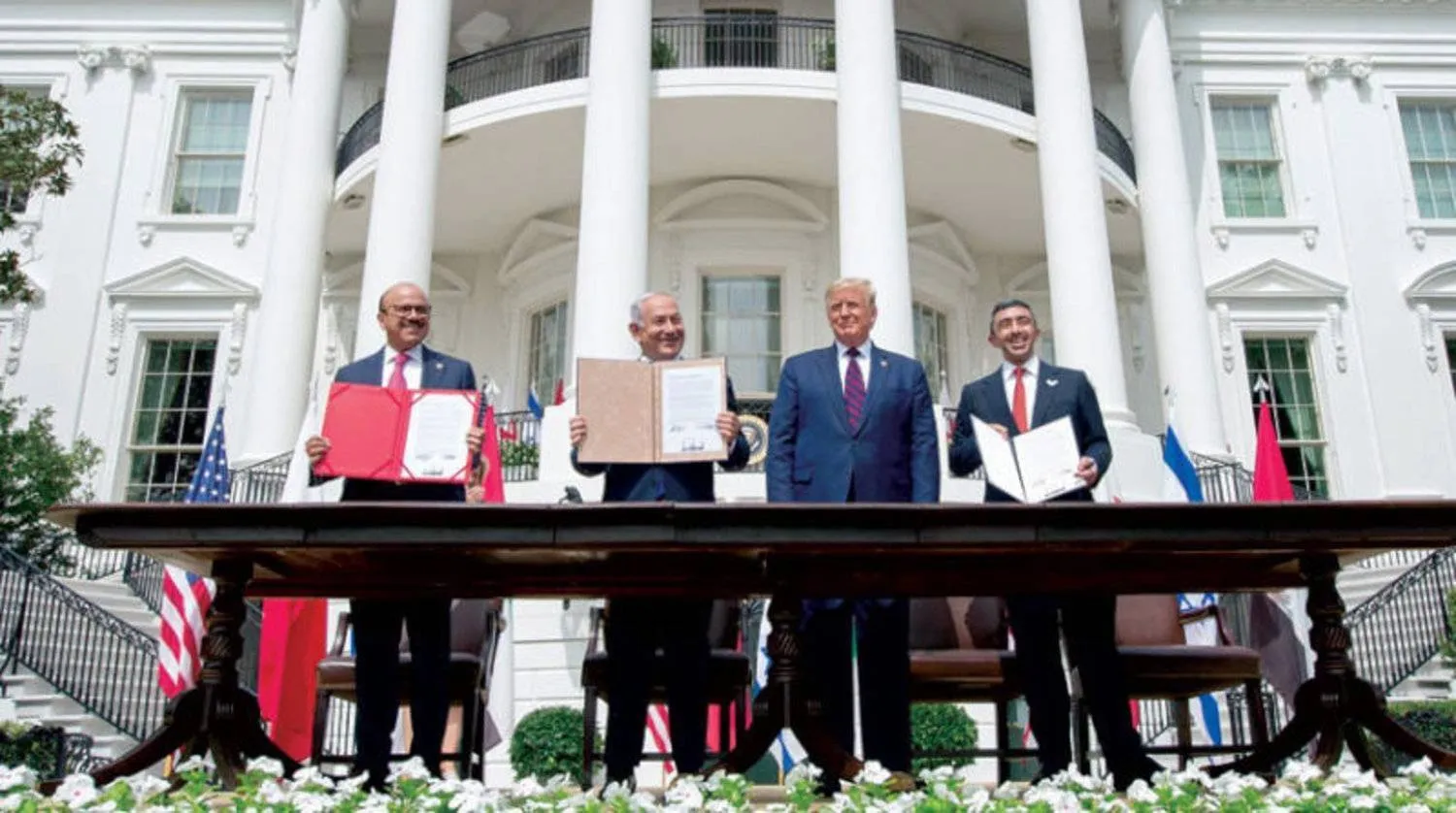The House of Representatives on Tuesday passed in the vast majority a bill that authorizes the Biden administration to appoint a special envoy dedicated to expanding the Abraham Accords.
According to the bill, which passed with 413 votes in favor and 13 against, the new envoy “would serve as the primary advisor to, and coordinate efforts across, the US Government relating to expanding and strengthening the Abraham Accords.”
The envoy would “engage in discussions with nation-state officials lacking official diplomatic relations with Israel regarding the Abraham Accords,” the legislation stated.
The envoy will also be expected to strengthen those existing agreements between Israel and Muslim-majority countries while “coordinating efforts across the US government and engaging diplomatically with foreign governments, nongovernmental organizations, and other stakeholders.”
The State Department appointee would have the rank of ambassador, thereby requiring Senate confirmation.
Congresswoman Cathy McMorris Rodgers welcomed the bill's approval. “Building on the progress we’ve made with the Abraham Accords is important work that requires a lot of time and dedication,” she said.
“This legislation sends a strong message to Israel and our allies that the United States stands firmly behind them – no matter how difficult the road ahead may be – and that we are taking the necessary steps to achieve peace in the Middle East,” Rodgers added.
Representative Ritchie Torres also welcomed the move “to establish the Special Envoy with the singular mission of strengthening and expanding the Abraham Accords.”
The bill passed 413 to 13, with 11 of the nos being from progressive Democrats known for their Israel criticism. They were joined by conservative Republican Reps. Thomas Massie and Rich McCormick.
Democrat Congresswoman Betty McCollum said she opposed the bill because peace in the region can only be achieved by respecting human rights, especially the rights of children.
“By turning a blind eye to the ongoing mistreatment of Palestinian children living under Israeli occupation, Congress only contributes to the continuation of injustice,” she said.
Instead, McCollum urged the appointment of a Special Envoy for Palestinian Youth to encourage diplomatic engagement between both sides.
McCollum and other representatives are minorities in Congress. Their calls have no bipartisan support, particularly amid the wide consensus to appoint the envoy, even in the Senate.
The bill still needs to make it through the Senate before becoming law. The Senate has announced that it will introduce its own bill aimed at boosting the Abraham Accords and to also encourage the expansion of the Negev Forum and make it an annual forum. The Negev Forum, held in March 2022, was the first forum in Israel to be attended by ministers of several Arab countries.
Senator Bob Menendez, the Chairman of the Senate Foreign Relations Committee, said “Normalization with Israel brings a host of tangible benefits to those countries that pursue it, and the Abraham Accords and Negev Forum are building on those benefits every day.”
He said the bill he introduced with Senator Jim Risch seeks to incentivize partners in the region, as well as those outside the region, to want to be a part of an expanded Abraham Accords and Negev Forum framework.









